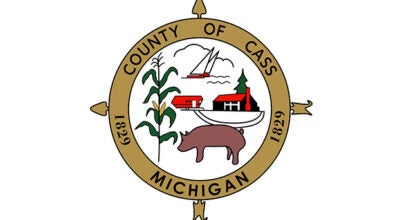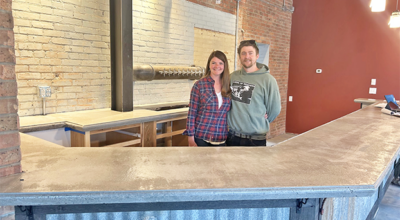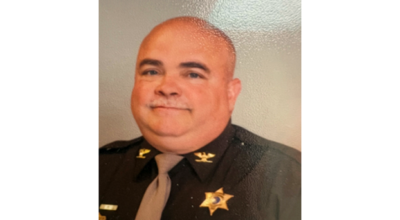Cassopolis Village Council votes against legal action against president
Published 2:37 pm Thursday, January 7, 2016
In a special meeting Monday, the Cassopolis Village Council voted 3-2 against taking legal steps to determine if council president Dianna McGrew is currently living within the village limits.
Citing questions from community members as the motivation behind the dispute that sparked more than 30 minutes of discussion, trustee Geraldine Norwood-Sims made a motion to seek declaratory judgment from the Cass County courts. This would have included a court hearing to declare where the president actually resides within the village limits.
To pass the motion would have taken a majority vote of the council with the president abstaining.
Voting in favor of the motion, which was seconded by pro-tem David Johnson, were Norwood-Sims and trustee Kathy Yoder.
Voting against the motion were Johnson, trustee Cynthia Jackson-Ash and trustee William Blount. Eugene Wagner was absent from the meeting.
During a lengthy and sometimes heated discussion among council members, McGrew was asked directly if she lived in the village.
The council president admitted she has been staying at her summer home on Diamond Lake, which is outside the village, since the death of her husband Gary in February 2015, but said she still considered her house on Park Shore Drive her residence.
Currently her son and his family are living in the house.
According to the village’s bylaws, “if any elected officer shall cease to be a resident of the village during his or her term in office the office shall be thereby vacated. If any officer is alleged to be in default as defined in section 7 of this chapter, the office shall be declared vacated.”
The council members voting against the legal action questioned both the issue itself and the motivation behind it.
“Residency is by choice. For many people who work one place and live in another,” Jackson-Ash said during the discussion. “A person declares a place of residency. Nobody can declare that for them. Your residency is a personal thing. So if a person says this is my residency, that is their residency.
“Now understandably, I am going to be honest, I really don’t know what generated this other than you are saying people in the community,” Jackson-Ash went on to say. “I am not sure what their concern was or if there was a problem. We are a council. We are a group. We work together. We don’t backbite each other. We don’t attack each other. We work as a team. We don’t let the community come out and pull us apart. If there is a problem we discuss the problem. If there is a problem about where she sleeps as far as her performance on her job, we should talk about that. But we cannot sit here and say, in my mind, in my experience, according to Michigan State law, we cannot sit here and tell her where her residency is.”
The council sought a legal interpretation from its attorney John A. Campbell of Dettman Fette & Campbell in Benton Harbor.
Campbell was asked his opinion on the residency question base on the following facts:
• The president of the village owns several properties some of which are located outside the village limits;
• At some point in the past year, the president may or may not have moved to a residence outside the village limits;
• Questions have arisen among the village council members as to what effect this potential change in residency has on the president’s tenure in office.
According to Campbell’s letter to the village, “based on those facts, you want to know does the president qualify to continue in office and/or what other legal issues should the council be aware of?”
In his opinion, Campbell said, residency is not defined within the General Law Village Act and that the definition is by default the same as it is for other questions of residency or domicile under Michigan law.
“The general definition is that residency is the place where a person lives with the intent of permanently residing for some time,” Campbell’s letter stated.
He went on to say: “the key to analyzing where a person resides is a fact-specific analysis, meaning we must look at the specific facts of each case to determine whether residency exists. Typically factors considered are (1) the address a person claims on their driver’s license; (2) where a person is registered to vote; (3) where a person considers his or her residence; (4) where do you attend church/participate in other group membership.”
Afterwards, the board went on to its work session where it once again tabled the purchase of new software for the village in the amount of $30,000, approved using the consent agenda beginning at its next regular meeting Monday and was informed that Borgess-Lee Medical Group is planning on extending its lease.
The council also decided to move forward with the sale of Southside Park to Community Mills, which has offered the village $15,000.
That was tabled from its previous meeting to discuss further if it wanted to remove a park from the south side. The council agreed that the money from the sale would go toward replacing the park at a more user-friendly location.
The council also discussed re-opening its contract with LaGrow Consulting. That will also be discussed at the meeting Monday.






